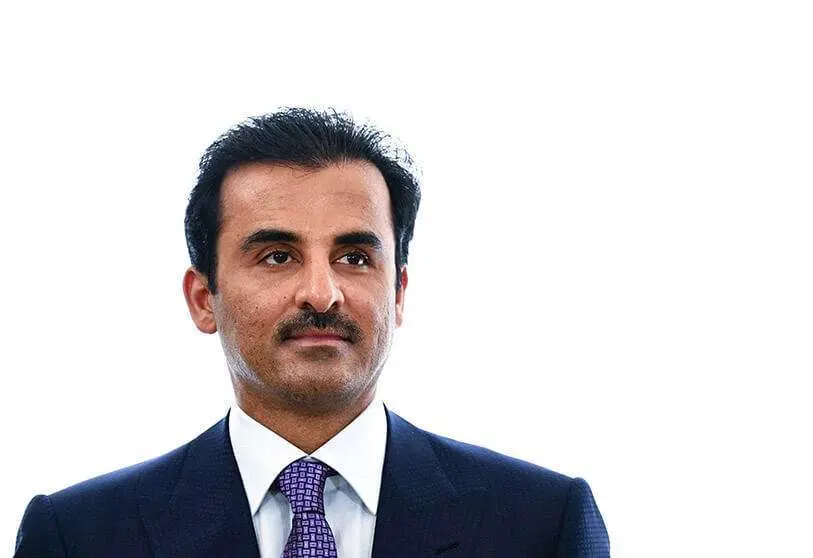Qatar encourages Gulf Arab countries to engage in dialogue with Iran

After its role as mediator between the West and Iran in the framework of the nuclear agreement negotiations, Qatar is positioning itself as an intermediary between the Gulf Arab monarchies and Tehran. The Qatari emir, Sheikh Tamim bin Hamad Al Thani, has encouraged all member states of the Gulf Cooperation Council (GCC) and Tehran to talk to each other during an interview with Le Point.
"Of course, there are differences, but we must sit down and talk about it directly between us and the Iranians, without outside interference," Al Thani told the French newspaper. The Qatari emir also admitted that Iran was "very important" to Doha because of the "historical relationship" and energy cooperation. "We share our main gas field," Al Thani recalled, referring to South Pars-North Dome.

Recently, the Gulf monarchies have made a tentative rapprochement with Iran after years of tensions. Both the UAE and Kuwait have opted to reappoint ambassadors to Tehran since 2016, when Saudi Arabia decided to sever relations with Iran after a mob stormed and set fire to its embassy in the Iranian capital. This incident followed the execution of a Shia cleric in the Kingdom on charges of terrorism and conspiracy.
Riyadh, for its part, has not followed in the footsteps of its neighbours. However, there have been meetings between Saudi and Iranian representatives in Iraq with the aim of reconciling positions.

During his interview, Al Thani assured that there are no "active members" of the Muslim Brotherhood in Qatar. Asked about his alleged links with the organisation, the emir stressed that "there are no such links". The stance towards the Muslim Brotherhood has been the main disagreement between Doha and its Gulf neighbours, as well as Egypt, where the movement was born.

Saudi Arabia, the UAE, Bahrain and Egypt severed relations with Qatar in June 2017 after accusing it of supporting the Muslim Brotherhood. However, this rift has been closing over the years. Indeed, Egyptian President Abdel Fattah Al Sisi recently visited Doha to seal that reconciliation.
"I don't want to talk about the past, we want to look to the future," Al Thani said of the blockade imposed by the countries of the region. According to the emir, the region "has entered a new phase". "Being united and cooperating is vital for the rest of the world. The GCC is in the process of recovery after great shock and turmoil, but we are now on the right path," he told Le Point.

Al-Thani also discussed other regional issues, such as the normalisation of Israel and the situation in Syria. Regarding the former, the sheikh assured that "every country has the right to establish relations with the nations it wants". However, he also stressed that things are not 'normal' in Israel, referring to the occupied Arab lands, the refugees who cannot return home and the 'Muslims and Christians living under siege in Gaza'.
The emir said he was open to pushing for "a two-state solution" because "Palestinians and Israelis must live side by side in peace". However, Al Thani acknowledges that "we are far from that".
As well as normalisation with Israel, certain Arab countries have begun to re-establish relations with Syria since the civil war began in 2011. Qatar, at the beginning of the conflict, supported the rebels against President Bashar Al Assad. "Why do we accept that a leader massacres his people and expels millions of refugees from his country?" asked Al Thani.

Leaving the Middle East aside, the Qatari emir also commented on the trade war between China and the United States, as well as the conflict in Ukraine and the energy crisis.
Al Thani made it clear that the US is "a great ally" but that China is its "main importer of liquefied natural gas (LNG), so he hopes that "tensions can be resolved through diplomatic and peaceful means". The same goes for Ukraine, where he calls for an end to the war and "finding a solution".
With regard to the sanctions on Russian energy - one of the causes of the current crisis - Al Thani said that one should "be careful" when it comes to sanctions because they can complicate things "for the whole world". However, he said he could not judge "whether Europe was right or wrong".
Al Thani also spoke to Le Point about the situation of the Muslim community in Europe, particularly in France, and the upcoming World Cup in Qatar between November and December.








